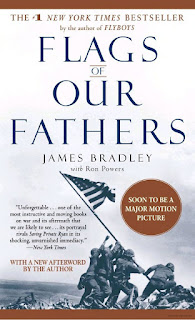I can't believe it is the end of the year already. And after 110 books, I put together my top ten in 2018. The top 5 are in the order of how much I loved the book. The bottom 5 are about equal. It took me awhile to make up my list as there are a few more I'd add here that I will mention under Honorable Mentions.
Less than half of the 110 were audiobooks. Most were borrowed from the library. Several of them I first listened to as audiobooks, loved them so much, so I had to read the written versions. A few I was able to receive an advance copy of in exchange for an honest review.
Based on Goodreads' stats, my average rating in 2018 is 3.7, which is higher than I expected. I'm usually very stingy with my stars. Here is the break down of what genres I read and it is no surprise to me what the top three are. I discovered my love for the science fiction genre this year, but not the fantastical kind. I like the ones that touch on the philosophical, ethical, moral aspect of it.
Here are my top 10 books in 2018:
1. The Gospel According to God by John MacArthur (Goodreads review) - John MacArthur is my pastor and I have always enjoyed every book I've read by him. But this one really struck me to the core. It is a straight exposition of Isaiah 53 and brought me to tears as Pastor John explained what God the Father had orchestrated in order to fulfill His plan to redeem a people, and it cost Him dearly. I was left in awe of God and His relentless love toward undeserving sinners like us.
2. How Should We Then Live by Francis Schaeffer (Goodreads review) - My second Schaeffer book read in as many years and both made it to my top 10 list. Mr. Schaeffer was a pioneer in his focus on how worldviews direct not only our individual lives, but they affect our society in both good and bad. I think every high school student should read it.
3. Night by Elie Wiesel (Goodreads review) - Another book I think should be read by all, especially the young generation. It is a poignant story of Mr. Wiesel's account of his time in a Nazi concentration camp. He writes so beautifully despite the detestable condition at the camp. It left me in tears in some passages.
4. In His Image by Jen Wilkin (Goodreads review) - This is the companion/sequel book to Jen Wilkin’s None Like Him, one of my favorite reads last year. Both books cover the attributes of God. The first covers the noncommunicable characteristics that are solely God's. In His Image covers those that we are to aspire after. Ms.Wilkin is one of a few female authors I enjoy reading.
5. Rocket Men by Robert Kurson (Goodreads review) - This compelling book covers the history of space flight before NASA even existed all the way to the lives of the crew, who manned Apollo 8, now in their 90’s. They were the first men to take part in mankind's first mission to the moon. Their heroic mission provided hope to the broken American society of the 1960's.
6. Flags of Our Fathers by James D. Bradley (Goodreads review) - This book covers the story of the six men (two were misidentified initially) who were in the iconic photo of the flag raising in Mt. Suribachi in Iwo Jima, from their humble beginnings to the end of their courageous lives. The author is a great storyteller. I look forward to watching the film adaptations.
7. Killing the Rising Sun by Bill O'Reilly (Goodreads review) - This historical book is an excellent recounting of the events that led to the bombing of Japan in WW2. It was very enlightening in describing the wartime atrocities of the Japanese that led to the use of atomic weapons.
8. The Pastor's Wife by Gloria Furman (Goodreads review) - Though it is written with minister's wives in mind, I recommend it to any woman who desires to minister to the Body of Christ. Ms. Furman skillfully reminds us to remove the focus off ourselves (and the challenges that come with ministry), but instead to be reminded of the excellencies of Christ and His gospel.
9. Indianapolis by Lynn Vincent (Goodreads review) - This is a great history, adventure, survival story, memoir and courtroom drama book about the worst sea disaster in US Naval History. The great writing, intriguing story and memorable heroes of this story make it one of my favorite books of 2018.
10. The Disappearing Spoon by Sam Kean (Goodreads review) - I just finished this book and almost didn't make it in time before I wrote this post. It is full of interesting facts and stories of the atoms in the periodic table and their discovery. As a Science major in college, I thoroughly enjoyed the geekness and seriousness of the topic.
Honorable Mentions, some of which I may not have rated 5-stars but deserved to be mentioned here, that (1) affected me in unexpected ways, (2) challenged me in my thinking, or (3) made me fall in love with the author's writing skills. You can check my Goodreads for my review of each of them:
Devoted by T. Challies, Eve in Exile by R Merkle, Gay Girl, Good God by JH Perry, Dark Matter by B Crouch, HIgh King of Heaven by J MacArthur, Sexual Morality in a Christless World by M Rueger and Tactics by G Koukl.
I hope you find this list helpful as you decide which books to devote your time on, which ones to give as gifts, especially Christmas is just around the corner. Happy reading!








